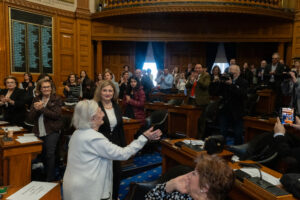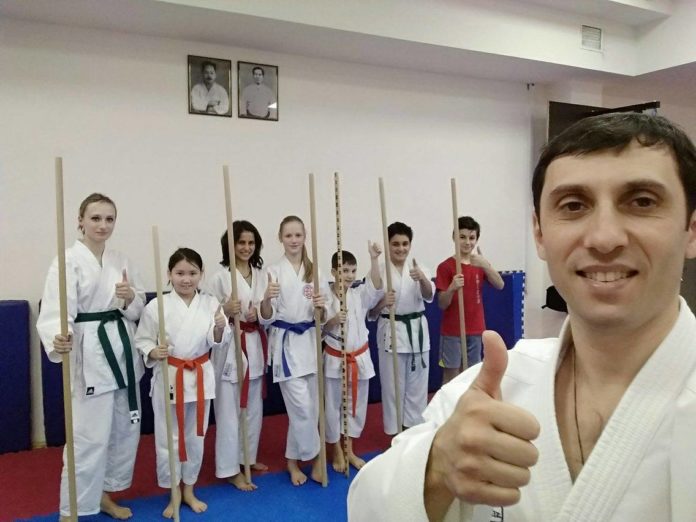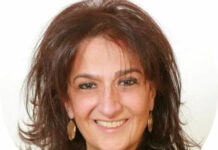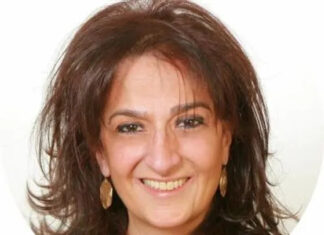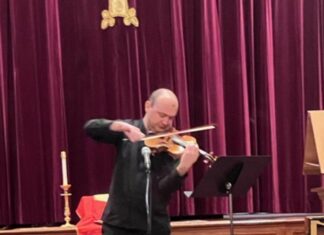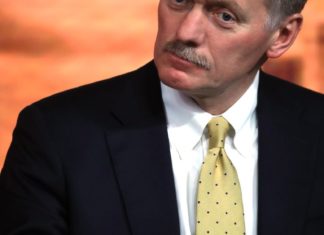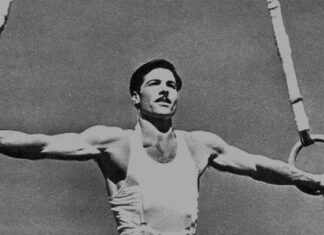YEREVAN / MYTISHCHI (Russia) — Nerses Topolyan, 44, a karate coach and Moscow Armenian community activist, was born in the city of Sukhumi, the capital of unrecognized Republic of Abkhazia. He studied at the Abkhazian State University in the department of technology of subtropical and food products (engineering technologist). Since 1988 he has been practicing karate, has a certificate for three dan of Shitō-ryū shitō-kai. For the last five years he has been a student of Shihan Oshiro Toshihiro, from whom he has been studying Shōrin-ryū karate-do and Yamanni-Chinen-ryū Kobujutsu. Nerses lives in Mytishchi (Moscow region), together with his wife, three sons and a daughter. He teaches karate in Moscow (Narekatsi Gymnasium), Mytishchi (School No. 31), Korolev (SmartUm Development Center for the Whole Family), Pushkino (X-Fit Fitness Club) and is the head of the Nika-Budo school of martial arts and combat sports. In September 2019, he represented Russia at the instructor training camp in Naha on the island of Okinawa (Japan).
Dear Nerses, I am always interested in people with diverse interests. How would you define yourself?
First of all, I am a person called by God to improve himself. I would like to keep the title of a human and try to grow higher. After that, I am the son of my parents who wishes them a long and happy life. I am a brother, friend and just an acquaint, who must be ready to live up to good expectations.
Since the age of 12 you have been involved with karate. Many do this, especially in their teens (also two of my sons), but few continue further and delve into its essence. Has karate helped to shape your personality?
Karate has always played an important role in my life. It was a great hobby as a child and a way of communication. There was a very good karate team in Abkhazia. We were visited by Japanese masters who carried inadvertent information about karate and motivated us. Unfortunately, the 1992-1993 war did not allow for us to continue classes. But, after the war, Abkhazia gradually began to come to its senses and in 1997, having entered the University, I met like-minded people with whom I continued my karate classes. At that time, it was a salvation from post-war stress. Karate has become my profession and one of the main hobbies of my life.
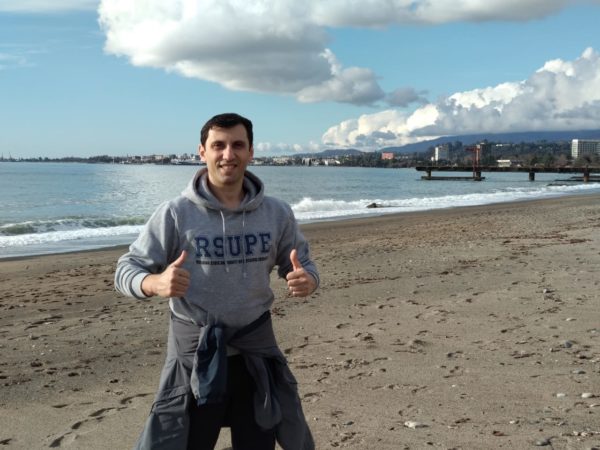
Interestingly, those who practice Shōtōkan karate dislike Kyokushinkan karate and vice versa. Is it the same for those who practice Shitō-ryū?
